 “Where do you work?” “What do you do for a living?” In America, these are among the first questions a new acquaintance will ask us. This simple inquiry reflects the cultural emphasis placed on work and career choice in the modern world. But for many, this dreaded question serves as a reminder that even work is a privilege.
“Where do you work?” “What do you do for a living?” In America, these are among the first questions a new acquaintance will ask us. This simple inquiry reflects the cultural emphasis placed on work and career choice in the modern world. But for many, this dreaded question serves as a reminder that even work is a privilege.
A recent survey conducted by TotalJobs, one of the UK’s leading jobs boards, revealed that more than half of d/Deaf and hard of hearing employees have faced discrimination at some point during their career because of their deafness. Approximately 25% of the survey’s respondents reported leaving a job as a result of discrimination. Just last year in the United States, deaf protestors marched on Washington D.C. to demand access to work, holding a banner that read “75% of Deaf are not working in USA.” What these numbers and actions suggest is that while companies are proudly touting diversity initiatives and proclaiming themselves to be “equal opportunity employers,” the reality does not match the narrative.
Discrimination in Hiring
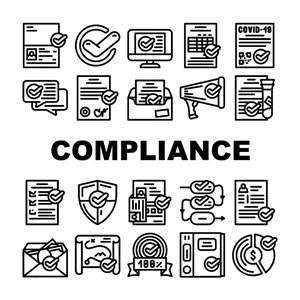 Often, discrimination against deaf individuals begins right in the interview stage. Deaf / HoH job candidates face the difficult task of revealing their disability to a potential employer, knowing full well how this might impact their chances of getting hired.
Often, discrimination against deaf individuals begins right in the interview stage. Deaf / HoH job candidates face the difficult task of revealing their disability to a potential employer, knowing full well how this might impact their chances of getting hired.
Deaf job seekers who use ASL as their primary form of communication are forced to decide whether they will hire their own interpreter for a job interview and pay out-of-pocket; or whether they will invoke their ADA right to have an interpreter provided by the company they are interviewing with.
While it might seem obvious that companies should provide interpreters for interviewees, as legally required, the unfortunate reality is that this makes deaf job candidates seem like a “burden” right off the bat. At this stage, a person who is d/Deaf is trying their best to make a good impression and, fair or not, asking a company to pay for reasonable accommodation during the interview process creates a stigma that is hard to overcome.
Take the example of Ricky Washington who applied for a job at McDonalds in 2012. Washington was a qualified employee with experience as a cook. He disclosed on his application that he was deaf and he was granted an interview, however once he asked McDonald’s to provide an interpreter for the interview, it was cancelled and never rescheduled. The restaurant management continued to interview and hire new workers while denying Washington the opportunity to interview. This is discrimination and it’s a violation of the Americans with Disabilities Act.
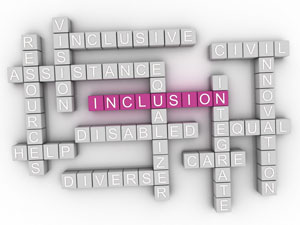
As per the Equal Employment Opportunity Commission’s Enforcement Guidelines on Reasonable Accommodation and Undue Hardship:
An employer must provide a reasonable accommodation to a qualified applicant with a disability that will enable the individual to have an equal opportunity to participate in the application process and to be considered for a job. Thus, individuals with disabilities who meet initial requirements to be considered for a job should not be excluded from the application process because the employer speculates, based on a request for reasonable accommodation for the application process, that it will be unable to provide the individual with reasonable accommodation to perform the job. In many instances, employers will be unable to determine whether an individual needs reasonable accommodation to perform a job based solely on a request for accommodation during the application process.
Although those who use auditory communication (ie: cochlear implants, hearing aids, lip reading) may not utilize an interpreter for job interviews, they face a similar set of difficulties during the hiring process. If the interviewer does not face the interviewee and speak clearly for the duration of the interview, the deaf/HoH person may struggle with understanding exactly what is being said. If the deaf/HoH interviewee asks the interviewer to repeat themselves too many times, the interviewer might become frustrated. If the deaf/HoH person chooses not to disclose their disability, they run the risk of the interviewer assuming they are just not paying enough attention or, even worse, that they are not intelligent because they cannot follow the conversation.
Workplace Discrimination
 If all goes well in the interview phase and the company decides to hire a d/Deaf/HoH employee, they may not even realize that their workplace is not set up for accessibility. They might not notice that their employees are not culturally competent. They might not fully understand what steps need to be taken to ensure a productive work environment for a diverse team. Creating a deaf-friendly workplace begins with basic communication needs and extends all the way into corporate culture.
If all goes well in the interview phase and the company decides to hire a d/Deaf/HoH employee, they may not even realize that their workplace is not set up for accessibility. They might not notice that their employees are not culturally competent. They might not fully understand what steps need to be taken to ensure a productive work environment for a diverse team. Creating a deaf-friendly workplace begins with basic communication needs and extends all the way into corporate culture.
“If an organization or business is interested in hiring deaf people, they must have commitment or buy-in from all levels,” explains Karen Cook, Director of the Career Center at Gallaudet University. “From top executives, CEOs, Board of directors, to managers, supervisors and HR staff. They must educate themselves about deaf people, Deaf culture, as well as the Americans with Disabilities Act, section 503 of the Rehabilitation Act, and other legislations that can advise them of proper procedures and regulations.”
Management sets the tone for how deaf employees will be treated in the workplace. Cultural competency education is a critical piece of this puzzle. Cultural competency education helps erase stereotypes and assumptions, providing a foundational understanding of what it means to be deaf, what accommodations deaf individuals may need, and how to best connect across the language and cultural divide to most effectively collaborate when working with a diverse team.
Of course outright discrimination still exists in the workplace— we can find examples of deaf people being made fun of by other employees or denied interpreters for important meetings— but there are other, more subtle forms of discrimination that can hinder a deaf person’s career. Being left out of social activities, such as lunches or happy hours, can create a sense of isolation. If a deaf employee feels marginalized by their coworkers, they are less likely to share their valuable thoughts and opinions, defeating the entire premise of a multicultural group. If deaf employees ask other workers to repeat themselves and are told “never mind” or “it wasn’t that important” too many times, they may just cease to ask questions and retreat into the background.
The Total Jobs survey showed that discrimination against d/Deaf/HoH individuals in the workplace is sadly common, with 1 in 4 deaf workers having left a job as a result. As previously mentioned, jobs can be difficult to come by and therefore deaf workers are not typically eager to leave their hard earned positions. But when they believe their needs as an employee are not being met, or they perceive hostility from other employees or management, these workers feel left with no other choice.
Barriers to Advancement
 When people who are d/Deaf/HoH are not able to access conversations and are left out of information exchange, they are automatically placed in a position of disadvantage. Even casual communication in the workplace is important, as it builds rapport and a sense of camaraderie.
When people who are d/Deaf/HoH are not able to access conversations and are left out of information exchange, they are automatically placed in a position of disadvantage. Even casual communication in the workplace is important, as it builds rapport and a sense of camaraderie.
If a deaf worker doesn’t feel comfortable in a group, or they aren’t able to fully participate in projects due to lack necessary accommodations (ie: captioning, interpreter, etc), they are less likely be considered when the time comes to offer promotions. If hearing workers are invited for dinners or rounds of golf with the boss, while deaf workers are overlooked for these invitations, guess which individuals will feel more confident and self-assured as professionals. In this way, hearing employees are able to benefit from even indirect mentorship simply because access to their superior is not limited by the boss’s willingness to reach across a communication gap.
Often times employees who are deaf are overlooked for promotions just because management is culturally unaware. They may fear that advancing deaf workers will be challenging for hearing subordinates (it’s not), or that the company will incur too many “additional expenses” (ADA provisions are part of running a business). Instead of recognizing the true potential of an individual and striving to remove barriers for everyone’s benefit, organizations tend to end diversity initiatives where the bottom line begins. Instead of analyzing the actual needs of deaf/ HoH employees, organizations might just assume that it will be too costly and time consuming to give deaf workers more responsibility. This uninformed and audist attitude toward creating opportunities effectively prevents companies from getting the most out of their deaf/HoH employees, since there seems to be no hope for upward mobility.
Creating Opportunities for Deaf Employees: How Can Deaf Individuals Take Action?
According to Cook, there are a number of ways deaf job seekers can improve their odds of being hired. Consider the following:
- Learn how to advocate for yourself. Be able to talk about your abilities and what accommodations you anticipate needing in the workplace, and provide five examples of your accomplishments.
- Practice interviewing with someone before an actual interview, and receive feedback on how to improve interview skills.
- Develop a resume with good format and no spelling or grammatical errors, which clearly highlights accomplishments, education, work experience. A good resume is what gets the attention of an employer and gets you an interview.
- Work with agencies that assist people with disabilities to find jobs (i.e. Vocational Rehabilitation)
- If individual is a college student or alumni, they can attend job fairs sponsored by their institution as employers who attend these Fairs are already interested in hiring them.
- Research employers and organizations such as US Business Leadership Network (USBLN) that promote inclusion of people with disabilities in the workforce. Other organizations include National Organization on Disability (NOD) which is a non-profit that focuses on increasing employment opportunities for working-age Americans with disabilities who are unemployed, and Career Opportunities for Students with Disabilities (COSD) which is a national association of colleges and employers focused on career employment of college graduates with disabilities.
How Can Employers Make Their Organizations More Deaf-Friendly?
 Employment and workplace discrimination is a complex problem that requires cooperation at all levels. The foundation for a positive and productive multicultural workplace begins with recognizing diversity as an asset. Cultural competency training for all employees, from the top executives to support staff, can help foster a deeper understanding of the value deaf individuals bring to organizations.
Employment and workplace discrimination is a complex problem that requires cooperation at all levels. The foundation for a positive and productive multicultural workplace begins with recognizing diversity as an asset. Cultural competency training for all employees, from the top executives to support staff, can help foster a deeper understanding of the value deaf individuals bring to organizations.
Beyond basic cultural competency training, Cook says that Human Resources departments should “work to ensure their processes, qualification standards, and job descriptions do not prevent the hiring and advancement of qualified persons who are deaf/HoH.” This means taking a look at current and future job postings to identify language that marginalizes those who experience hearing loss or deafness.
Cook also suggests that companies develop internship programs that bring in deaf students, with the potential to become full time positions for well-performing individuals. HR coordinators can partner with universities, such as Gallaudet and RIT/NTID, as well as vocational rehabilitation organizations to help create pipelines from school to work. Hiring managers can reach out to organizations involved in providing job opportunities for people with disabilities, such as US Business Leadership Network, Career Opportunities for Students with Disabilities, and National Organization on Disability to learn about best practices.
Once the decision has been made to add deaf/HoH employees to the team, employers should take time to learn about that employee’s communication needs and the different technologies that are available to accommodate deafness in the workplace. A great suggestion for welcoming a deaf individual who uses sign language to the organization is to offer ASL classes to any interested supervisors, managers, and coworkers. Besides helping hearing people learn to communicate with deaf individuals, ASL training can be a fun group activity!
If a person who is deaf feels like they are a valuable part of the workforce, they are likely to perform better and feel more invested in the success of the company. Cook points out that if an employer treats deaf/HoH employees well by providing accommodations, increasing job responsibilities, and offering opportunities for promotion, they will also be more likely to tell other deaf people that it is a great place to work. This creates a snowball effect for the diversity of the organization.
Working Together
 As we progress through the 21st century, previously marginalized groups are finding ways to fight back against the inherent oppression of mainstream culture. People with different identities are standing up and advocating for access to opportunity, including the basic right to make a living. Without these opportunities, a cycle of financial, spiritual, and cultural poverty is created.
As we progress through the 21st century, previously marginalized groups are finding ways to fight back against the inherent oppression of mainstream culture. People with different identities are standing up and advocating for access to opportunity, including the basic right to make a living. Without these opportunities, a cycle of financial, spiritual, and cultural poverty is created.
By welcoming people who are d/Deaf/HoH into workplaces and setting them up with the tools they need to succeed, the entire organization can reap the benefits of diversity. Deaf employees bring a unique perspective and new ideas. When they feel comfortable, supported, and included as part of the team, they can focus on contributing to the overall success of your company.
SignNexus is thrilled to offer Cultural Competency Training seminars for businesses and organizations on a national level. Learn how to effectively integrate Deaf/HoH employees in the workplace and provide them the support they need, while educating other staff members and management about deafness and Deaf culture. Our cultural competency training is comprehensive, informative, and a great team-building exercise!






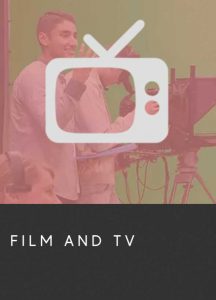





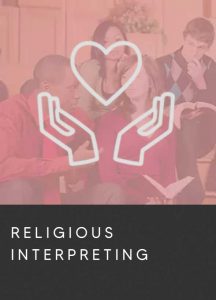
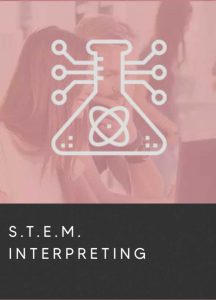
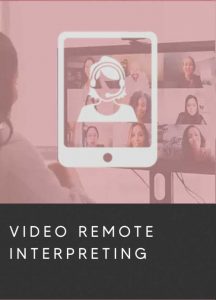
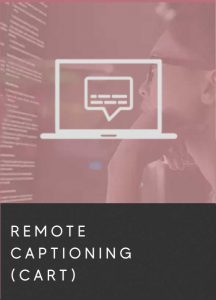

 “Where do you work?” “What do you do for a living?” In America, these are among the first questions a new acquaintance will ask us. This simple inquiry reflects the cultural emphasis placed on work and career choice in the modern world. But for many, this dreaded question serves as a reminder that even work is a privilege.
“Where do you work?” “What do you do for a living?” In America, these are among the first questions a new acquaintance will ask us. This simple inquiry reflects the cultural emphasis placed on work and career choice in the modern world. But for many, this dreaded question serves as a reminder that even work is a privilege. Often, discrimination against deaf individuals begins right in the interview stage. Deaf / HoH job candidates face the difficult task of revealing their disability to a potential employer, knowing full well how this might impact their chances of getting hired.
Often, discrimination against deaf individuals begins right in the interview stage. Deaf / HoH job candidates face the difficult task of revealing their disability to a potential employer, knowing full well how this might impact their chances of getting hired.
 If all goes well in the interview phase and the company decides to hire a d/Deaf/HoH employee, they may not even realize that their workplace is not set up for accessibility. They might not notice that their employees are not culturally competent. They might not fully understand
If all goes well in the interview phase and the company decides to hire a d/Deaf/HoH employee, they may not even realize that their workplace is not set up for accessibility. They might not notice that their employees are not culturally competent. They might not fully understand  When people who are d/Deaf/HoH are not able to access conversations and are left out of information exchange, they are automatically placed in a position of disadvantage. Even casual communication in the workplace is important, as it builds rapport and a sense of camaraderie.
When people who are d/Deaf/HoH are not able to access conversations and are left out of information exchange, they are automatically placed in a position of disadvantage. Even casual communication in the workplace is important, as it builds rapport and a sense of camaraderie. Employment and workplace discrimination is a complex problem that requires cooperation at all levels. The foundation for a positive and productive multicultural workplace begins with recognizing diversity as an asset.
Employment and workplace discrimination is a complex problem that requires cooperation at all levels. The foundation for a positive and productive multicultural workplace begins with recognizing diversity as an asset.  As we progress through the 21st century, previously marginalized groups are finding ways to fight back against the inherent oppression of mainstream culture. People with different identities are standing up and advocating for access to opportunity, including the basic right to make a living. Without these opportunities, a cycle of financial, spiritual, and cultural poverty is created.
As we progress through the 21st century, previously marginalized groups are finding ways to fight back against the inherent oppression of mainstream culture. People with different identities are standing up and advocating for access to opportunity, including the basic right to make a living. Without these opportunities, a cycle of financial, spiritual, and cultural poverty is created.





